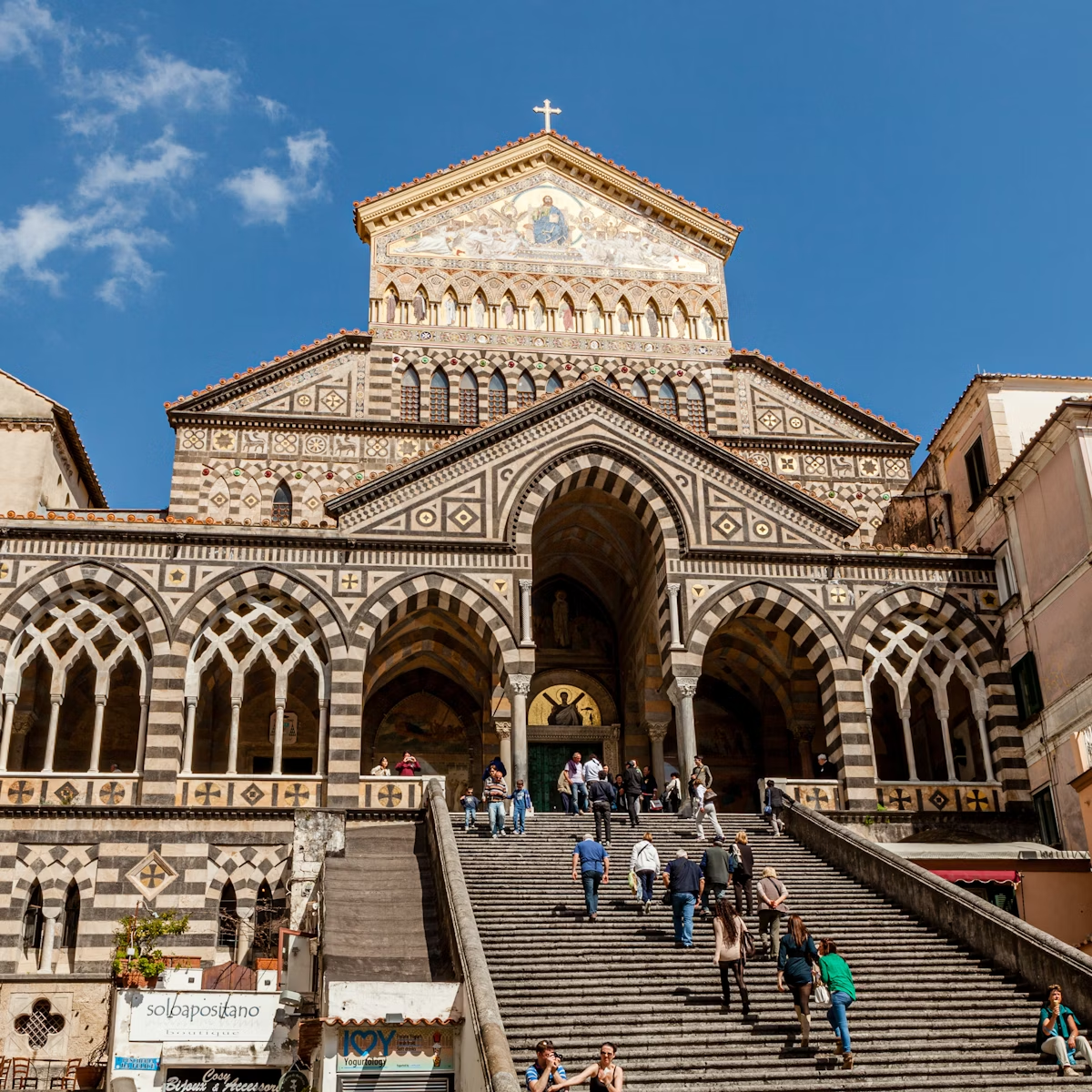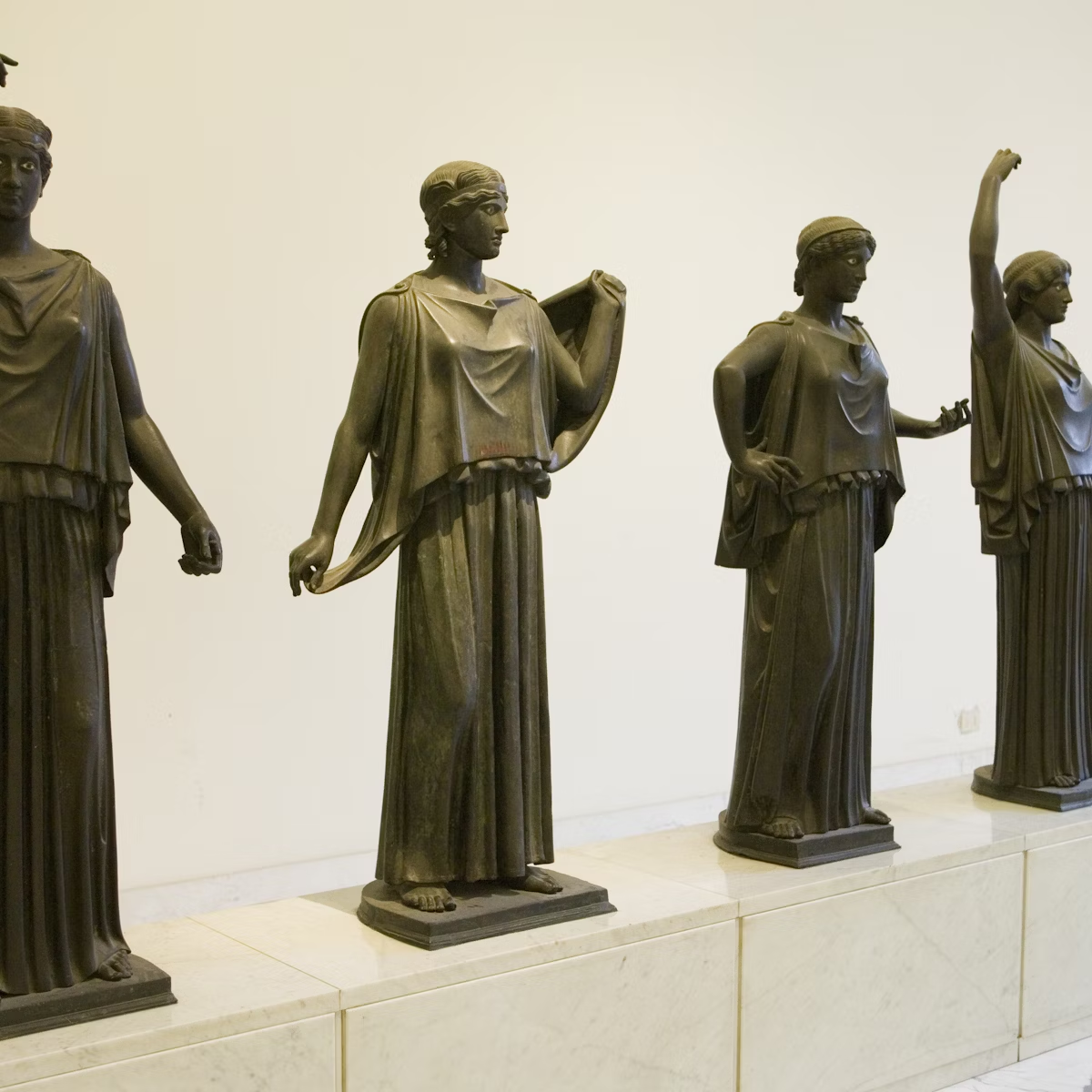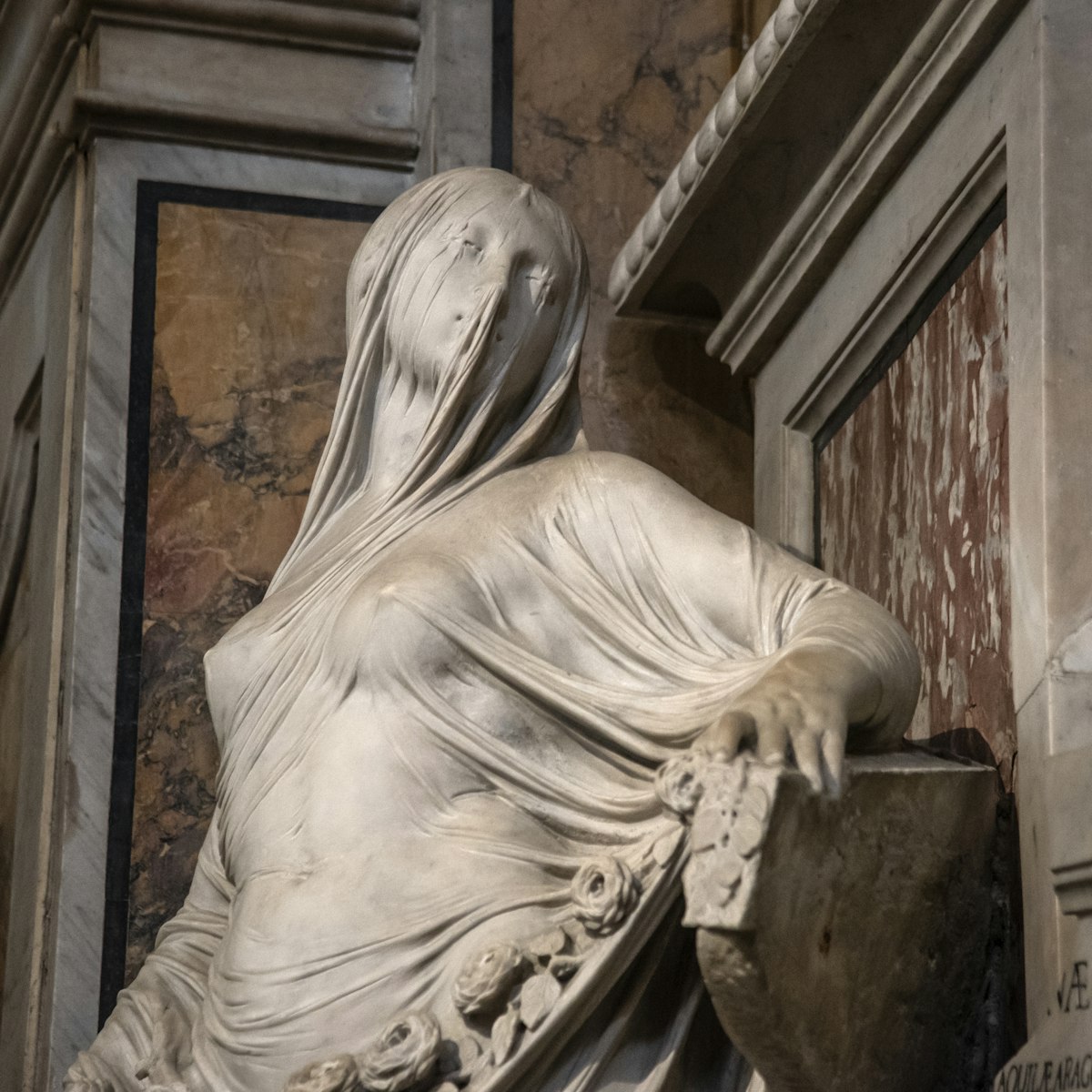The high point (quite literally) of the Neapolitan baroque, this charterhouse-turned-museum was built as a Carthusian monastery between 1325 and 1368. Centred on one of the most beautiful cloisters in Italy, it has been decorated, adorned and altered over the centuries by some of Italy’s finest talent, most importantly architect Giovanni Antonio Dosio in the 16th century and baroque sculptor Cosimo Fanzago a century later. Nowadays, it’s a superb repository of Neapolitan and Italian artistry.
The monastery’s church and the sacristy, treasury and chapter house that flank it contain a feast of frescoes and paintings by some of Naples’ greatest 17th-century artists, among them Battista Caracciolo, Jusepe de Ribera, Guido Reni and Massimo Stanzione. In the nave, Cosimo Fanzago’s inlaid marble work is simply extraordinary.
Adjacent to the church, the Chiostro dei Procuratori is the smaller of the monastery’s two cloisters. A grand corridor on the left leads to the larger Chiostro Grande (Great Cloister). Originally designed by Dosio in the late 16th century and added to by Fanzago, it’s a sublime composition of Tuscan-Doric porticoes, marble statues and vibrant camellias. The balustrade marks the Certosa's small cemetery, adorned with skulls created by Fanzago.
Just off the Chiostro dei Procuratori, the Sezione Navale documents the history of the Bourbon navy from 1734 to 1860, and features a small yet extraordinary collection of royal barges. The Sezione Presepiale – which faces the refectory – houses a whimsical collection of rare Neapolitan presepi (nativity scenes) from the 18th and 19th centuries, including the colossal 19th-century Cuciniello creation, which covers one wall of what used to be the monastery’s kitchen. The Quarto del Priore in the southern wing houses the bulk of the monks' historic picture collection, as well as one of the museum’s most famous sculptures, the tender Madonna col Bambino e San Giovannino (Madonna and Child with the Infant John the Baptist). The piece is the work of Pietro Bernini, father of the more famous Gian Lorenzo Bernini. Also noteworthy is a statue of St Francis of Assisi by 18th-century master sculptor Giuseppe Sanmartino, creator of the Cristo velato (Veiled Christ) housed in Naples' Cappella Sansevero.
A pictorial history of Naples is told in Immagini e Memorie della Città e del Regno (Images and Memories of the City and Kingdom of Naples). Here you’ll find portraits of historic characters; antique maps, including a 35-panel copper map of 18th-century Naples in Room 45; and rooms dedicated to major historical events such as the eruption of Mt Vesuvius and the Revolt of the Masaniello (Room 36) and the plague (Room 37). Room 32 boasts the beautiful Tavola Strozzi (Strozzi Table); its fabled depiction of maritime Naples in the second half of the 15th century is one of the city’s most celebrated historical records.
It's worth noting that some sections of the museum are only open at various times of the day; see the website for specific times.
Below the Certosa is the imposing Sotterranei Gotici (Gothic basement). The austere vaulted space holds around 150 marble sculptures and epigraphs. Unfortunately, tours were suspended indefinitely in 2017; contact the museum for updates.








